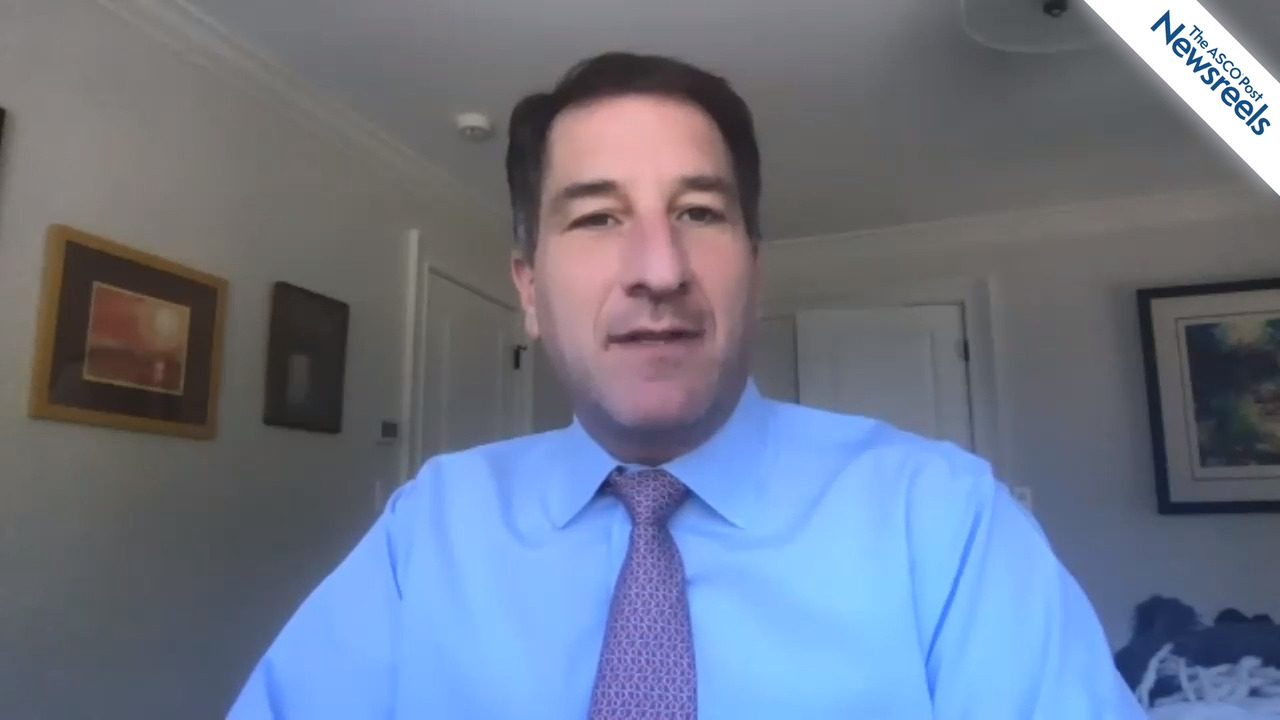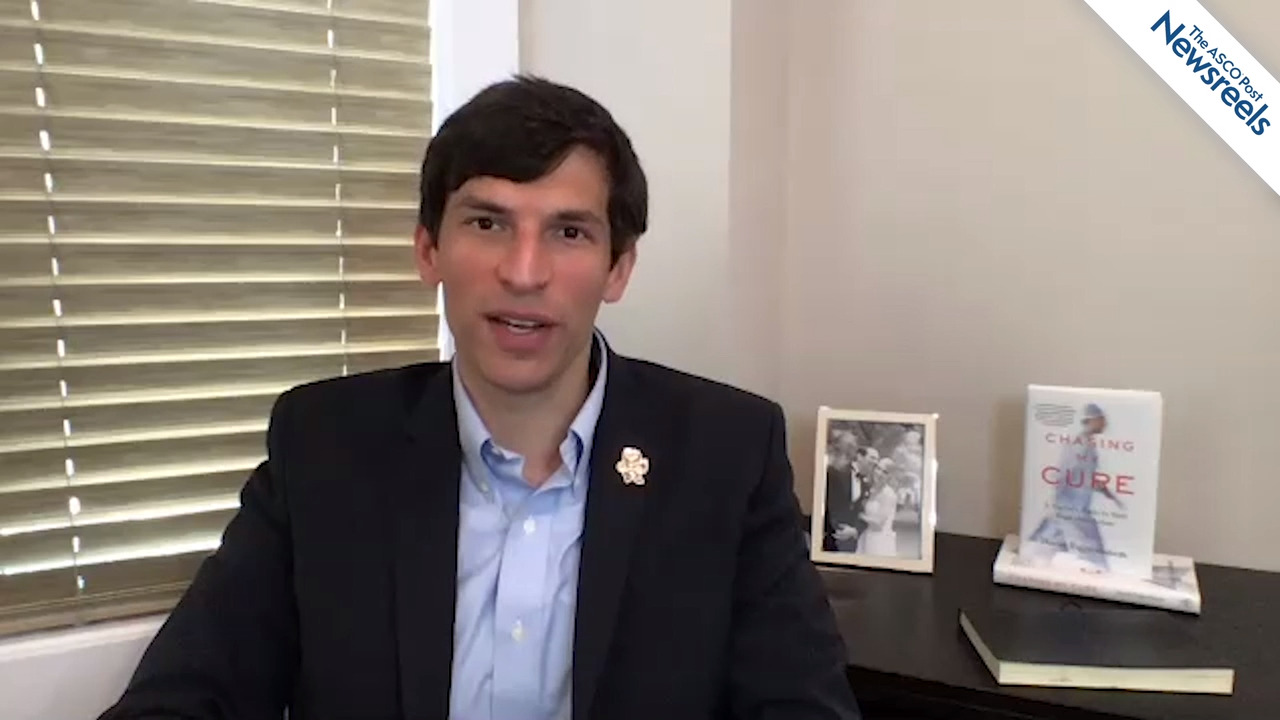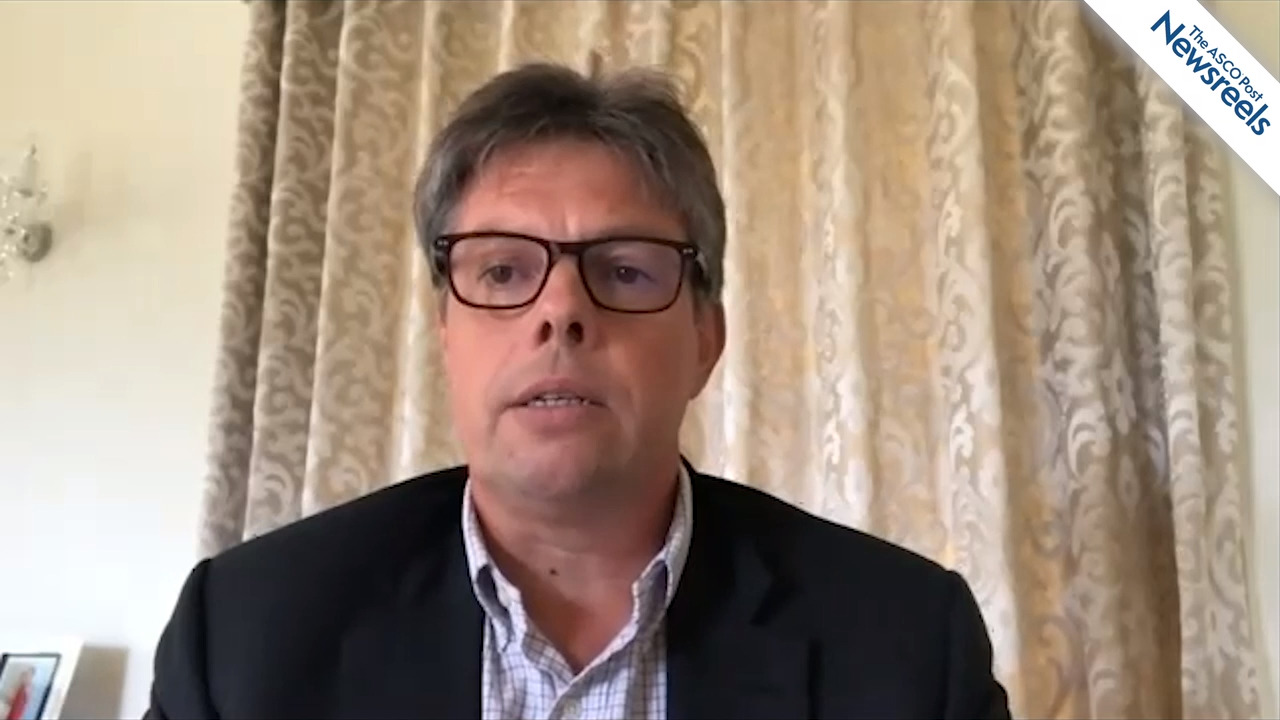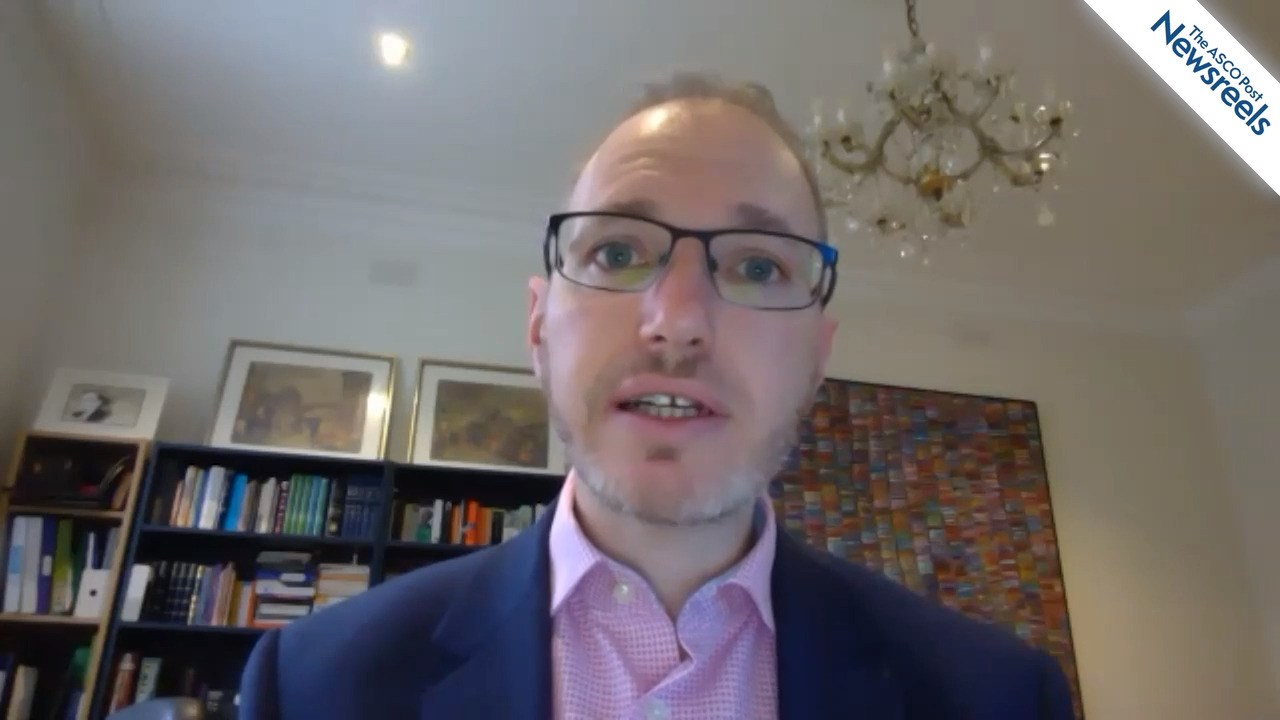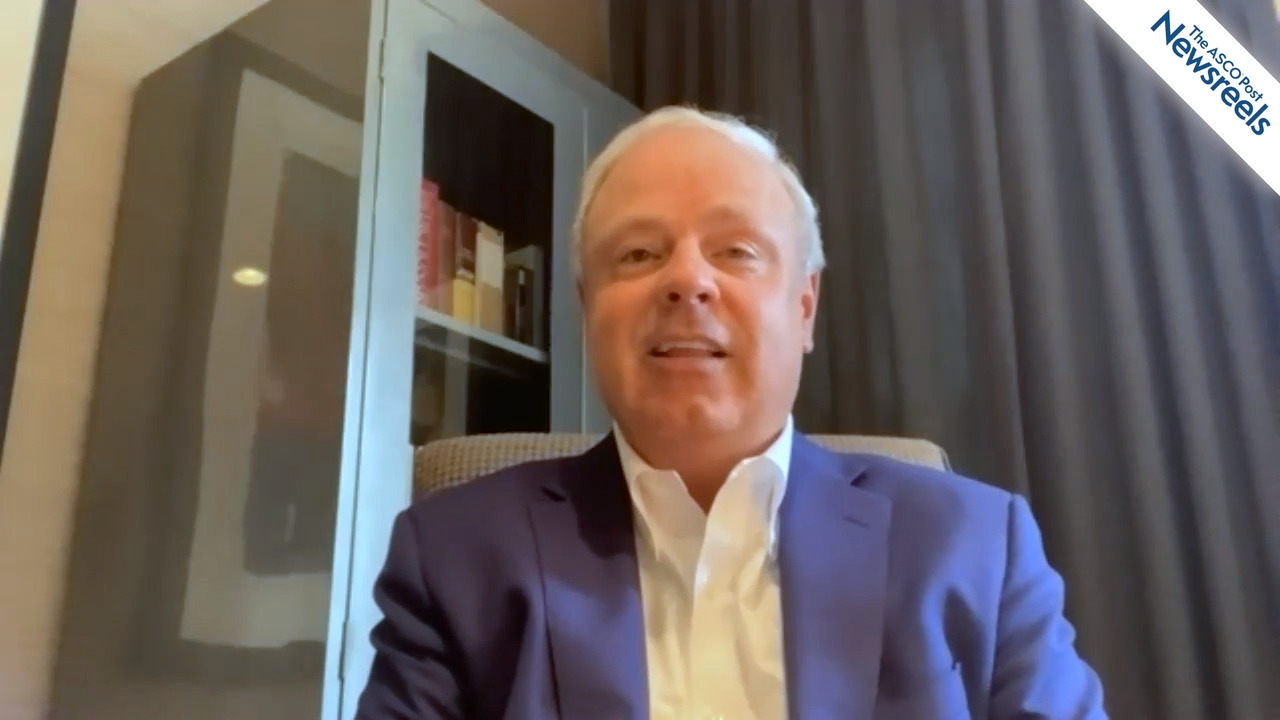Sara A. Hurvitz, MD, on Breast Cancer: Four Major Studies on Trastuzumab, Pertuzumab, Anthracyclines, and Chemotherapy De-escalation
ASCO20 Virtual Scientific Program
Sara A. Hurvitz, MD, of UCLA’s David Geffen School of Medicine, summarizes four breast cancer studies: KATHERINE, on adjuvant trastuzumab vs trastuzumab in patients with residual invasive disease after neoadjuvant therapy for HER2-positive breast cancer; KAITLIN, on trastuzumab emtansine and pertuzumab vs trastuzumab, pertuzumab, and taxane after anthracyclines as adjuvant therapy for high-risk HER2-positive early breast cancer; TRAIN-2, on neoadjuvant chemotherapy with or without anthracyclines for HER2-positive disease; and PHERGain, on chemotherapy de-escalation using an FDG-PET/CT and pathologic response–adapted strategy in HER2-positive early breast cancer (Abstracts 500, 501, 502, and 503).
The ASCO Post Staff
Jeffrey A. Meyerhardt, MD, MPH, of Dana-Farber Cancer Institute, discusses results from the CALGB/SWOG 80702 trial of celecoxib plus standard adjuvant therapy with fluorouracil, leucovorin, and oxaliplatin (FOLFOX). Adding celecoxib to standard chemotherapy did not significantly improve disease-free or overall survival (Abstract 4003).
The ASCO Post Staff
David C. Fajgenbaum, MD, MBA, of the University of Pennsylvania, who trained as an oncologist, summarizes his opening lecture, a dramatic story of his battle against Castleman, a disease of the lymph nodes, his multiple near-death experiences, and the path that led him to develop a cooperative research effort making a difference for him and other patients with this idiopathic orphan illness.
The ASCO Post Staff
Christopher Nutting, MD, PhD, of the Royal Marsden Hospital and Institute of Cancer Research, discusses phase III results from the first study to demonstrate the functional benefit of swallow-sparing intensity-modulated radiotherapy in oro- and hypopharyngeal cancers (Abstract 6508).
The ASCO Post Staff
Michael S. Hofman, MBBS, of the Peter MacCallum Cancer Centre, discusses phase II results from the ANZUP 1603 trial, which showed that in men with docetaxel-treated metastatic castration-resistant prostate cancer, LuPSMA was more active than cabazitaxel, with relatively fewer grade 3 and 4 adverse events and a more favorable PSA progression-free-survival (Abstract 5500).
The ASCO Post Staff
Howard A. Burris III, MD, FACP, FASCO, Immediate Past President of ASCO and current Society Board Chair, talks about how the meeting went, with its record-breaking attendance and new format.
